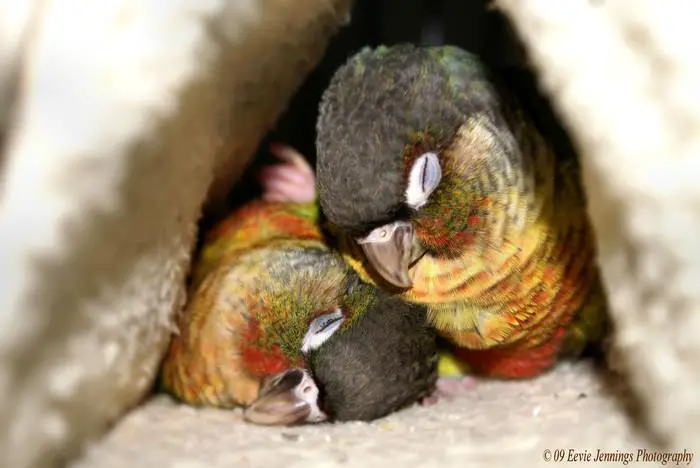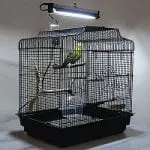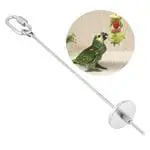The bird’s sleeping pattern is one of the extraordinary traits they have. They may not have an exact sleeping pattern with mammals, but they also have the cycles of Non-rapid Eye Movement sleep and Rapid Eye Movement sleep, but the only difference that they have with other mammal’s sleeping patterns is that they only short sleeping cycles. The non-rapid eye movement pattern of birds only lasts for about three minutes, while rapid eye movement lasts for about nine seconds only. Studies show that birds also have the ability to sleep with their brain that is half asleep, and they are the only animal species that can control it.
Another difference with the way birds sleep is the way how they sleep; they can do it either they are standing on the ground, on their perch, as well as hanging upside down. When the birds sleep, they would usually fluff their feathers for them to cover their bodies to conserve the heat, also known as thermogenesis. The sleep patterns of birds are usually determined by sunlight availability. Most birds are diurnal, where they are active during the day, and at night is their resting period. In the wild, the wild, some birds engage in unihemispheric slow-wave sleep (USWS) wherein they have the ability to sleep with their eyes open so if a threat is detected, it could escape immediately.
Benefits of Sleep for Birds
There are a lot of positive things that sleep does to your bird. It is through sleeping where birds tend to gain their energy. Most bodily repairs happen when the first is at rest. Being healthy is not only gained from eating healthy foods, but it also boosts through having enough sleep.
When your bird has enough sleep, they will have a strong immunity to fight diseases or illnesses. Your bird will feel full of energy the next day with a good mood if it gets to sleep at least 10-12 hours.
Research shows that proper sleep also helps in regulating the bird’s weight to avoid weight problems such as obesity and overweight. When you play and actively train your bird, it is a must that your bird has enough sleep because, like humans, adequate sleep aids in their memory, learning, and metabolism.
How Much Sleep Does a Bird Needs?
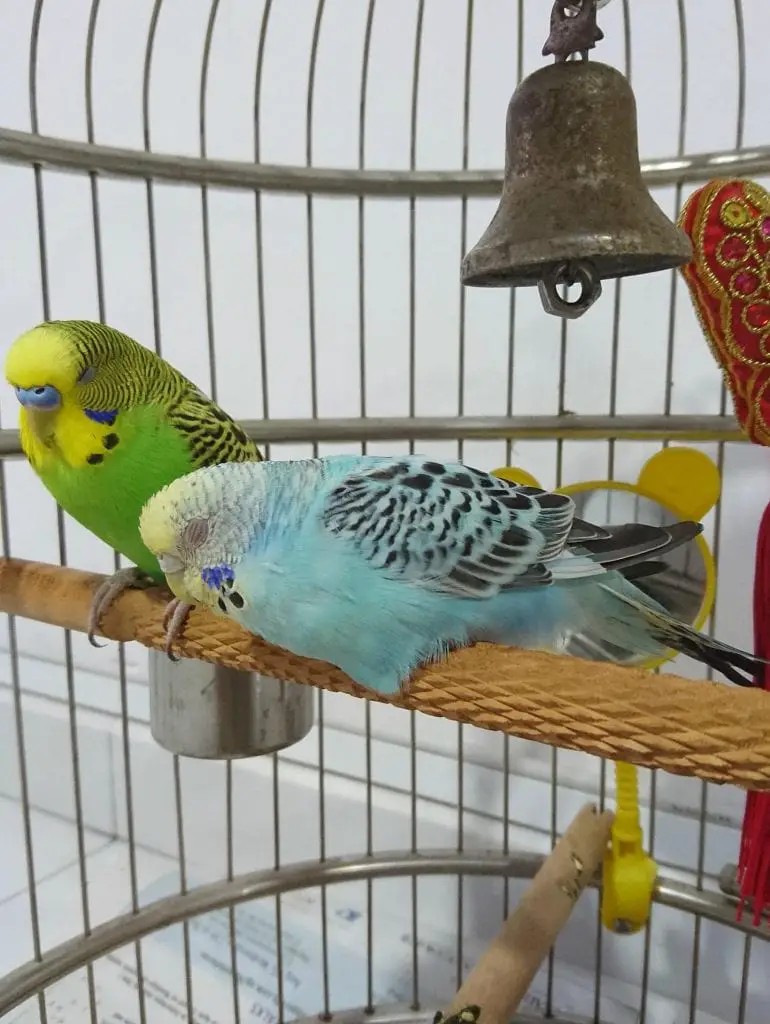
Birds need a lot of sleep. Most birds living in the wild would usually have 10-12 hours of sleep, which is from sunrise to sunset. For birds to have a successful sleep, there should be darkness, and in some cases, wherein you need to induce sleep to them, you need to turn off the lights or cover their cages with blinds or thick cloth, and they should be placed in an area which is quiet and calm. In the wild, they are used to sleeping at night because their predators are also asleep at night.
Consequences When Birds are Lack of Sleep
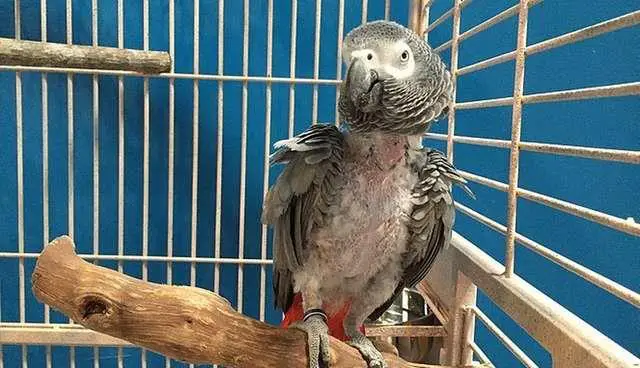
Like humans, birds also manifest some behavioral problems due to lack of sleep. When they lack sleep, they tend to be anxious, which leads to other problematic behaviors such as biting, shrieking, and worst they may tug out their feathers. Lack of sleep also weakens the immune system of birds that makes them susceptible to different kinds of diseases or illnesses. They also get irritated easily, which makes them quite aggressive.
There are a couple of reasons why birds lack sleep in most cases; it has something to do with the light hours, cage dimensions, and when they are suffering from certain illnesses that make it hard for them to sleep comfortably. If the reason why they lack sleep is because of the light hours, you’ll just need to make sure that your bird has a total of 10-12 uninterrupted light hours; they should also be caged in an appropriately sized housing in a quiet environment. If it seems like your bird is sick and that is why it can’t sleep properly, you may need to take it to the veterinarian.
How to Help a Bird Get a Good Night’s Sleep
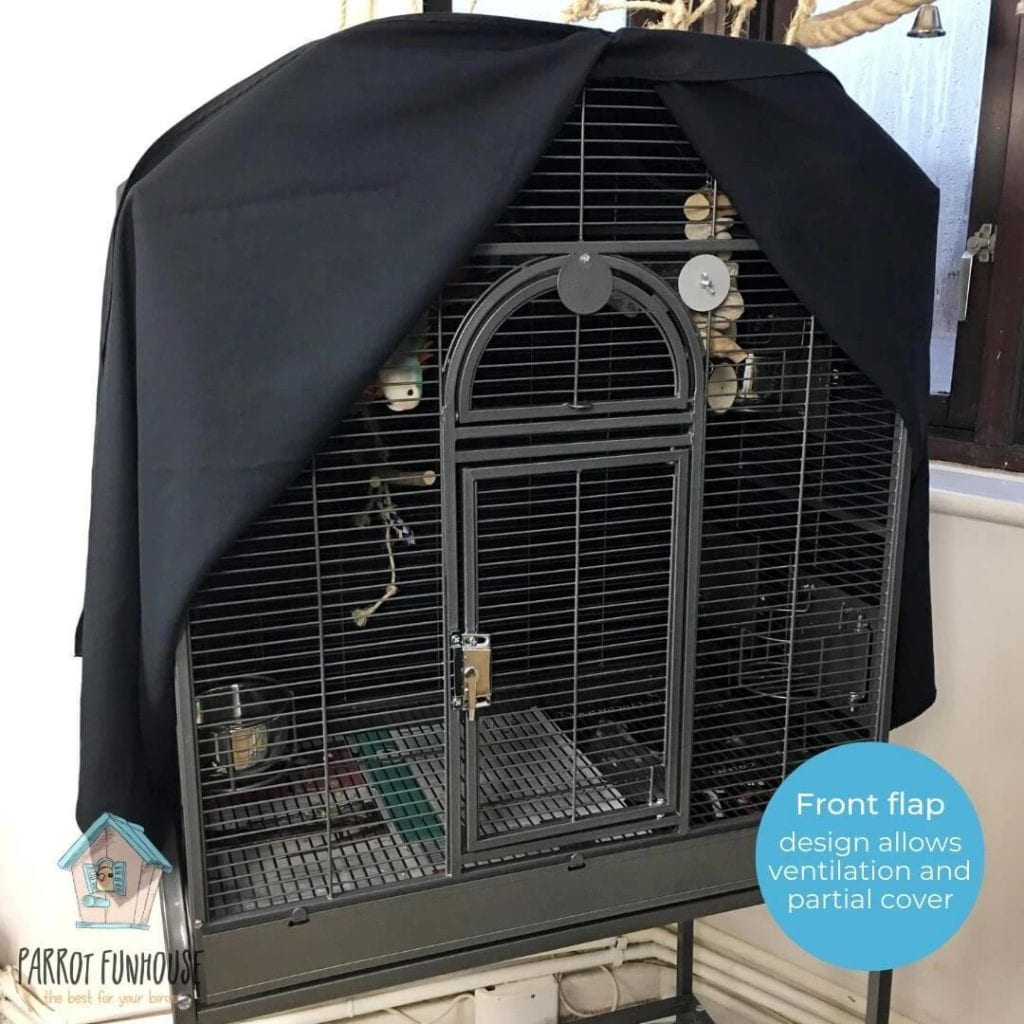
- Birds are used to sleeping in their perch, but to further make sure that they will have a goodnight’s sleep, you may have sleeping quarters in their cage where you can have a roosting box or brush pile for comfortable sleeping.
- During their sleeping time, you need to place their house in a place where they are safe from their predators at homes such as cats and dogs. You may need to secure their cage by placing them in an area where they are safe.
- During their dark hours or sleeping time, make sure that there is no lighting equipment that may disrupt their sleeping patterns.
- Keep a sleep schedule for your birds. If you keep up with this sleep schedule, you will not have a hard time putting your bird to sleep.
- Birds may develop a night fright if their surroundings are noisy at the time of their sleep. Put away any entertainment appliance near their cage and, as much as possible, cover their cage with a cage cover to somehow trap the noise.
Sleeping Equipment that Ainsworth Investing
- Bird sleep cage
You may need to make the cage of your bird as well as their environment where it is placed in a conducive place for them to rest peacefully. It is sleeping is a sleeping cage inside their cage so that they can comfortably and securely fall asleep. A birdcage is usually made from dense materials that act as filters to buffer the noise outside.
- Cage covers
Cage cover is an important accessory that is not only used to block the light out to give the bird a complete dark hour, but it is also an effective help to trap dust from entering the bird’s cage. You can either purchase a specific cage cover, but you can also do improvise cage cover.
- Bird snuggle hut
This is a sleeping accessory that you can hang inside the bird’s cage. You may choose from different sleeping tents that are suitable for the size of the bird as well as the dimensions of their cage. A high-quality snuggle hut also has the ability to filter out noise to help keep the bird have an uninterrupted sleep. This will not only serve as sleeping quarters, but it will serve as a hiding place if they feel it is frightened.
- Sleep perch
It is important to place different levels of perches in their cage, but the perch that would most likely serve as their sleeping quarters is the perch located on the highest part of their cage; that is why it should be a comfortable one. There are types of bird’s perches that are like a mattress because of its texture so as to avoid soreness of the bird’s feet.
Final Thoughts
Sleep is an important activity in the life of birds. As a breeder, you need to understand the sleeping patterns of birds so that you would know how to give them a comfortable and safe environment during their nap time. Don’t deprive your birds of time of sleep if you want then to live happily.

